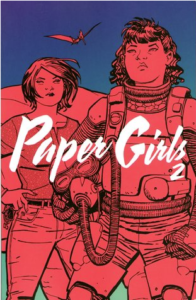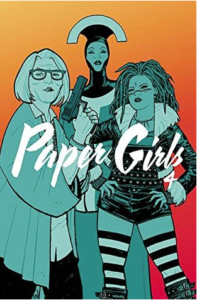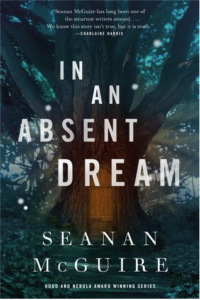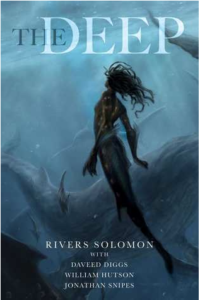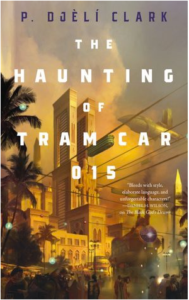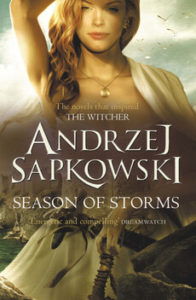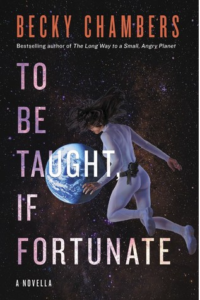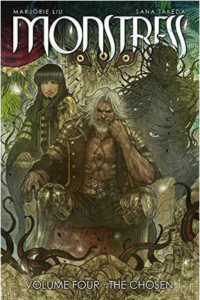Because I don’t have a subscription to the OED, I will take Merriam-Webster at their word that the first appearance of “listicle” was in 2007, several eternities ago in internet terms — back when you still had to have a .edu address to get a Facebook account (back when youngish people still thought Facebook was neat) and just a year or so after Google bought YouTube for what seemed an absurd sum at the time. How can you make any money sharing videos? And who would want to do that? Like those two behemoths of the net, listicles are here to stay, and judging from this year’s and last year’s Hugo nominees in the short story category, something like a listicle has become a standard form in short fantasy and science fiction.

Last year’s ballot featured “The Secret Lives of the Nine Negro Teeth of George Washington” and “A Witch’s Guide to Escape: A Practical Compendium of Portal Fantasies” (plus “STET,” whatever you think its form might be, and also “The Last Banquet of Temporal Confections” in the novelette category). This year brings “Ten Excerpts from an Annotated Bibliography on the Cannibal Women of Ratnabar Island” by Nibedita Sen and, not entirely in list form but structured around lists, “A Catalog of Storms” by Frank Wilde. I find the form aggravating, because it invites authors to just gesture toward a story rather than to actually tell one. At best, I think a listicle story — storycle? — can be a clever conceit, but all too often that’s all that’s really going on: there’s some cleverness, but not much story.
“And Now His Lordship is Laughing” by Shiv Ramdas is, as Doreen noted, a revenge fantasy, set up with the death of a child who is only in the story to die and motivate the protagonist. The ending is visible from miles away.
The possible death of a child is also the crux of “As the Last I May Know,” by S.L. Huang. There’s a war on (isn’t there always?) and terrible weapons are available. They might prove decisive in the war, but they might also lead to the end of all life. Huang calls them calls them “seres” rather than “atomic” or “thermonuclear,” but they amount to the same thing. The country where the story takes place is the only one on which seres have been used in the past. Now, the codes to use them are not carried by a political aide, but embedded in the body of a ten-year-old. To use the weapons, the codes have to be ripped from the child, killing, in this case, her. Nyma by name. A precocious poet, chosen for her role by lot, committed to its importance but afraid of dying. But if the president can’t kill one person directly, why should he be allowed to kill millions by remote control? As a fable, it’s a decent exercise, but as political commentary, I think it underestimates the seriousness with which presidents take questions of war and peace. At least, presidents who are not raging psychopaths. Presidents who are raging psychopaths would not have a problem extracting the codes from their carrier, so I think there is a clear lesson for democratic polities about what kind of president not to have.
“Do Not Look Back, My Lion” by Alix E. Harrow also turns on how much of a raging psychopath a political leader — in this case an Emperor (who is a woman) rather than a president — is, and what that means for her subjects, even her most exalted ones. There’s a war on (isn’t there always?), and the eastern conquest is going badly. The land of Xot is a fierce matriarchy; the only named male character is Tuvo, almost sixteen, a gentle soul but still keen to be as much a warrior as his older sisters or his mother Talaan, the Lion of Xot. Much of the population of Xot literally worships death. Eefa, Talaan’s husband (though both are women), is a healer and not fully able-bodied. She is not held in the regard that Talaan is, even by their daughters. The story tells of the love between Eefa and Talaan, and how much is too much for a warrior born and true.
I agree with Doreen that the ending of “Blood is Another Word for Hunger,” by Rivers Solomon, feels like more should be coming, rather than turning back inward to something like the beginning. But getting there is full of mythic strangeness that sets this story apart. In the midst of the American Civil War, a slave girl takes a knife and murders her mistress along with the four other women that form her mistress’ family. Instead of relief, though, Sully feels more rage afterward. “It was Sully’s unsoftened anger in the face of what she’d done that cut a path between dominions. The etherworld spat out a teenage girl, full grown, called Ziza into Sully’s womb. Ziza had spent the last two hundred years skulking in the land of the dead, but she rode the fury of Sully’s murders like a river current back to the world of flesh. Ziza felt it all, wind and sky and the breath of wolves against her skin. She spun through the ages looking for the present, time now foreign to her after being in a world where everything was both eternal and nonexistent.” Murder and myth and live and death all mix together on that isolated farmstead, with something new trying to peek around the corner. This story is best when it refuses to stay fixed to earth; because of that, I am not sure that a satisfying ending is possible.
All of the main actors of this year’s short story nominees are women, whether the authors themselves are or not. The leads of half of the stories are explicitly coded as non-white; as the only country to have city-killing weapons used on it, the setting of “As the Last I May Know” could be read as a stand-in for Japan (though with a president rather than a prime minister) but there is not enough description to declare it a direct analogue.
This year’s Hugos would have been presented in New Zealand, but because of the pandemic the Worldcon organizers have made CoNZealand into a virtual convention. I would have loved to have had the money to travel there, and I am sorry to see the dream of “Worldcon in Middle Earth” derailed. George R.R. Martin will be this year’s presenter, and the ceremonies should be watchable online.
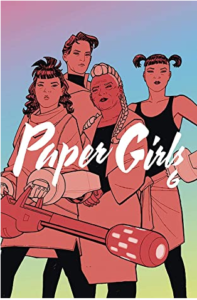 Oh, it’s over? I don’t want it to be.
Oh, it’s over? I don’t want it to be.

